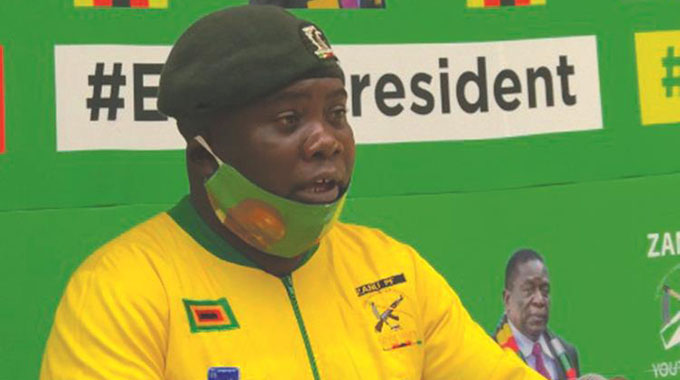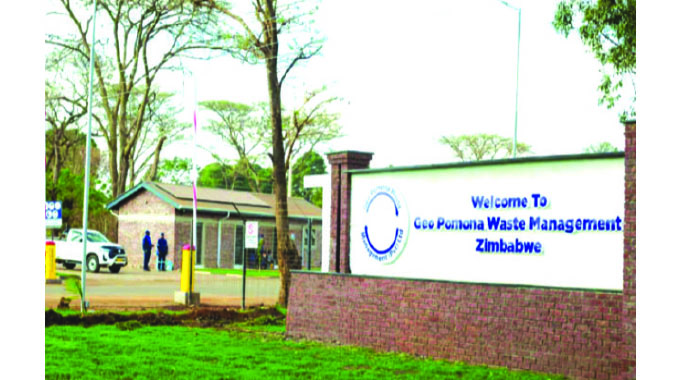Editorial Comment: People must act to keep Covid-19 at bay

This time last year the second wave of Covid-19 was creeping along in Southern Africa and starting to be a concern, although it was early days, and with far too many people very complacent since the first wave had been beaten back and most of the economy re-opened and getting ready to celebrate the festive season in style.
And then the second wave exploded. The parties, many in breach of medical advice and most in defiance of the regulations most governments in the region, including that of Zimbabwe, had adopted to keep the-levels of infection at low levels while the first vaccines were being rolled out.
That second wave eventually led to a level four lockdown, with much of the retail sector closed, and a lot of people falling very sick before we eventually beat it back, only to have the same again six months later when we once again grew complacent and the delta variant drove a new third wave.
So with the fourth wave already raging through Europe, which is seeing its worst rates of infection since Covid-19 appeared, and the rates in South Africa now rising fast, and with the new Omicron variant now identified and a major potential risk, Zimbabwe this time wants to start taking effective action earlier.
On Tuesday President Mnangagwa was careful and treated Zimbabweans as adults, making it clear that while we would probably have some sort of fourth wave, the extent and duration were largely dependent on what we as individuals and communities were prepared to do. The more we follow advice the less the damage. As President he can mobilise and communicate that advice, and he can get the Government to provide the required resources.
But we need to then do the last leg of the journey and follow the advice. He made some modest changes, tightening up the level two lockdown. Cross border travel becomes more difficult in that returning residents and visitors, who still need their PCR certificates to enter now also need to quarantine, at their expense. This will make many think again about whether they really need to assemble as a family this Christmas, or whether it might not be better to spend some of the air ticket money, or petrol money, on more data so we assemble virtually. Coupled with the near interdiction of Southern Africa, that has seen most flights into and out of the region cancelled for the time being, it looks as though much travel has been stopped. That still leaves internal travel, the intercity travel as it is termed even though a lot is to small family villages.
Here we may well need a campaign to make people take care. One consideration for those wanting to gather as a family is to try and not kill each other. Vaccination is still an effective method of sharply reducing infection risk, and of ensuring symptoms are far more likely to be milder if there is infection, that even healthy younger people who are unlikely to get very ill might want to protect their grandmother when they meet up at Christmas as get their jabs.
But, as we have seen in the past, as infection rates rise in Zimbabwe and as we see clusters of infection, one sensible policy has been to manage intercity travel better and where necessary to ban it. Such policies work
The President also extended the curfew very modestly, by 90 minutes. The evening curfew now comes into effect at 9pm instead of 10pm and in the morning ends at 6am instead of 5.30am. In some ways the changes remind us that there is a curfew and we are supposed to be home, rather than running around all night breaking a lot of other social gathering rules while we party without precautions. Much of the rest of what the President was pushing was to be compliant and to enforce what is already there. Businesses are supposed to close at 7pm, and no one ever said the hospitality industry had a special exemption.
Restaurants, bars and nightclubs are supposed to demand a vaccination certificate on entry, and yet the number that do so is very small. Bottle stores were allowed to open on condition that they did not allow drinking in the premises and moved along their customers outside, so they took their bottles home instead of drinking on the pavement. But the public drinking is now there.
The President was quite blunt, The complacency of far too many Zimbabweans coupled with the fourth wave now emerging in the region and the new Omicron variant could between them make life very difficult. Yet the measures that we should be adopting are all there, and have even been written into the emergency public health regulations.
There is a limit to how far the authorities can enforce the rules. Obviously more can be done, but we can never get anything close to universal enforcement as there are simply not enough police officers. Odd raids can be made, and fines levied, but the most important way of gaining compliance and enforcing the rules comes for us and our communities.
We all need to play our part and we can all apply a degree of society pressure on those who seem reluctant. After all other anti-social behaviour besides a refusal to wear a mask attracts criticism.
And there are still plenty of vaccines available, with the process free. The mass rush to the vaccination queues has not really been seen. In fact daily vaccination rates are now falling again after the modest surge seen as schoolchildren aged 16 and over were jabbed. Regrettably “perhaps tomorrow” still seems to be the motto of many. All this is somewhat depressing.
The Government bought the vaccines and lined up health staff to dish them out, free. The medical advice was sifted down to a simple set of rules that would sharply reduce infection rates if followed. But the final steps need to be taken by people. We do not have to wait for the fourth wave to start panicking. Just losing the complacency can save a lot of lives since the rest is there.










Comments